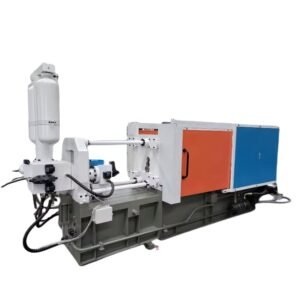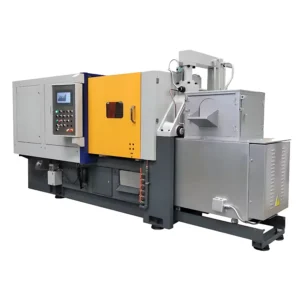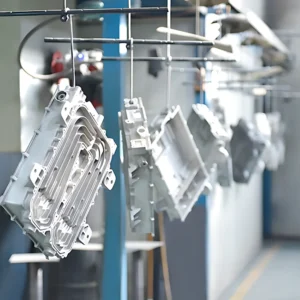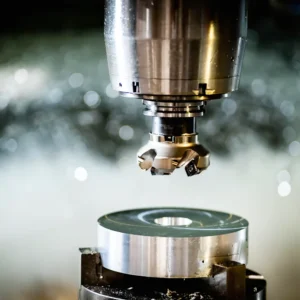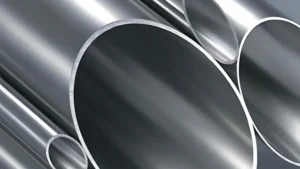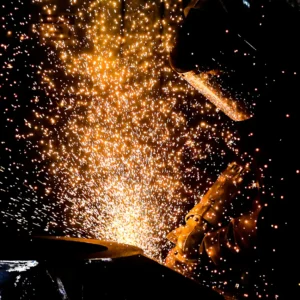CNC technology has been used for many years to machine and manufacture a wide variety of items. In this article, we will look at some of the most commonly used materials for CNC projects, including.
- Stainless Steel
- Aluminum
- Metals
- Titanium
- Metals
- Copper
- Brass
- Carbon and Alloy Steels
- Plastics CNC Machining
Let’s take a closer look at the specific properties of these materials and their role in CNC machining.
Related read: NC vs. CNC Machines What Is the Difference
Things to Consider Before You Do CNC Machining
When you decide to have a part machined on a CNC machine, you need to be clear about a lot of things. For example, the material you want to use, the tolerances you need to meet, geometric constraints, post-processing steps, and quality-checking rules. Some might say that material selection is one of the most difficult constraints to define. This is because the interactions between metals and their environment are very complex and metals react differently to loads.
In addition, engineers have many excellent materials to choose from. As a result, choosing the right material for CNC machining can be difficult. While metal CNC projects may be more popular, this article will discuss the most common CNC materials, including plastic materials.
Here are some steps to selecting the right material for your next CNC machining project:
Determine the Requirements of the Product End Use
- Environmental conditions
- Thermal stress and heat dissipation
- Need for electrical conductivity or magnetism
- Demand for mechanical loading (strength)
- Requirements for surface finish
- Aesthetics and style
- Budget or cost
- Weight
- Manufacturing methods for complex geometries
Consider the Balance Between Different Requirements
Make a list of possible materials based on the above constraints and then weigh the following factors against design constraints such as budget:
- Cost versus weight
- Force vs. weight
- Lead time vs. cost
- Availability versus manufacturing method
When selecting materials, consider the most important material requirements and design constraints. Select the right material for your product design based on its ease of processing, resistance to environmental damage, and tensile strength.
Stainless Steel
Today, you can buy many different types of stainless steel. grades 304, 316, 416, and 17-4 PH are commonly used for CNC machining. Stainless steel is robust and has a protective layer of self-forming oxidation, making it suitable for use in harsh environments.

Stainless steels come in different grades because they contain different alloying elements. For example, the addition of molybdenum to 316 stainless steel makes it more resistant to rust and corrosion, while sulfur in 303 stainless steel makes it easier to machine.
Stainless steel alloys are used to make many different types of parts for consumer products, heavy machinery, surgical equipment, kitchenware and appliances, military, aircraft, and automobiles. In addition, stainless steel is often used to make parts that need to be very strong and reliable, such as shafts, gears, bolts, nuts, and fittings.
In addition, stainless steel can be machined. However, certain types of stainless steel are easier to machine than others. Because CNC machining of stainless steel is so common, most machine shops are experienced in setting up machines. Therefore they can successfully and accurately machine stainless steel parts.
CNC Aluminum Metal
Over the past few years, you may have heard that aluminum is being used in many new areas. For example, lightweight bodies for pickup trucks or rocket parts. Aluminum is an excellent material for CNC machining parts because it is easy to machine, strong, lightweight, and resistant to rust.

Aluminum also has good thermal and electrical conductivity, making it useful in electronics and thermal control. When choosing between stainless steel or aluminum alloys for CNC machining, both material cost and job requirements should be considered. When weight is important, aluminum is a better choice because it is lighter.
Aluminum alloys are used in a wide range of applications in the automotive, medical, consumer products, cookware, and aerospace industries. Aluminum is often used for brazing or casting. Here you can view the advantages of using cast aluminum.
One of the downsides of using metallic aluminum is that it cannot always be brazed. Aluminum CNC projects may also require some post-treatment or finishing after machining.
Titanium Metal
Titanium has transformed many different fields and helped solve some of the biggest problems in manufacturing. Alloys made from titanium are tough, strong, lightweight, and will not rust. Titanium is considered to be the most valuable metal and works well in harsh conditions where other metals may fail.
When titanium was proven to be safe, the medical field immediately began using it. Now, titanium is often used in medical devices and implantable tools such as medical screws and instruments. Because titanium alloys are so strong, they don’t creep and have a good metallurgical structure. For this reason, many titanium alloys are also used in aircraft, industry, and the military.
As an example, titanium is about twice as strong as aluminum, but only a little more than half as thick. People also like to buy goods made of titanium on the market, such as lightweight golf clubs.
Copper
Copper is an excellent material for conducting electricity and heat. Silver is the only metal that is better than copper when it comes to conducting electricity and heat. For commercial use, copper, which is about 99% pure, is difficult to machine with a CNC machine because it tends to bend at low temperatures. However, there are many copper alloys that are easy to CNC machine and have similar or better qualities than copper.

Copper alloy 101 is a higher purity copper. It works well for applications requiring high ductility, impact strength, and electrical/thermal conductivity. However, it does not provide good resistance to rust. Copper 101 is commonly used in the manufacture of electrical parts such as computer parts, wires, and busbars.
Of all the copper alloys, the one with the best electrical and thermal conductivity is the slightly less pure copper alloy 110. It is also less prone to rusting. Copper 110 is used to make superconductor magnets, gaskets, electrical parts, jewelry, naval hardware, building materials, and vacuum equipment.
Brass
Brass is made from copper and zinc and has some of the same qualities as copper. Brass is long-lasting and easy to work with. This metal also does not rust, conducts electricity well, and has a low coefficient of friction. Brass is very useful and can be used in many different areas such as plumbing, electrical engineering, art, and medicine.
360 Brass is the best brass metal for machining. In fact, it is so well suited for machining that it is often referred to as easy-cutting brass. It is strong, durable, and resistant to rust. Screw machine parts, heavy industrial parts, consumer goods, musical instruments, electrical parts, and water fittings are some of the best applications for using this thick, sturdy material.
Carbon and Alloy Steels
Many people buy and use mild steel because it is cheap and easy to work with. As the name suggests, carbon steel is made up of carbon as an alloying element. Carbon is second only to iron in the amount of carbon in steel. Mild steel contains less carbon (0.05% to 0.25%), which makes it more ductile and easier to weld.
However, mild steel cannot be hardened by heating like high-carbon steel. CNC machining of mild steel is not difficult. 1018 Steel and other steel alloys can be used to make motor shafts, pump shafts, pins, sprockets, spindles, fittings, mounting plates, and even craft parts. On the other hand, medium carbon steel is strong and can be made harder by heating. Heavy parts such as bolts, studs, and rods can be made from alloys such as AISI 1045 medium carbon steel.
Carbon is not one of the major alloying elements in alloy steels, except for iron. Alloy steels are superior to carbon steels in rust resistance, welding, heat resistance, and bending. However, carbon steel is stronger than metallic steel. Alloy steels are usually available as low alloy steels and high alloy steels.
Alloy steels are made from carbon steel, but alloy steels have one of about 20 alloying elements added. An example of a low-alloy steel is 4130. It is an alloy with molybdenum and chromium added to make it harder and more wear-resistant. 4140 alloy steel contains chromium, molybdenum, and manganese, making it stronger and less prone to damage at high temperatures. In addition to appliances, silverware, cooking tools, and automobiles, alloy steels are often used in industrial applications.
Plastics CNC Machining
Plastics are a large group of synthetic or semi-synthetic products that consist mainly of polymers. An excellent CNC machined plastic part can be made in a variety of ways. Chemicals cannot damage some plastics, such as high-density polyethylene, and they also do not conduct electricity or electricity.

Nylon resists chemical corrosion and contact wear. PEEK is lightweight, abrasion and moisture-resistant, and will not react with chemicals. PEEK can replace most soft metals when performing CNC machining. One of the most commonly used plastics in machining is polycarbonate, which is very heat and impact-resistant.
People like to use plastics for CNC machining because they are inexpensive and lightweight. CNC machined plastics are used in the manufacture of medical devices, laboratory tools, screws, electrical parts, and chemical-resistant containers.
Conclusion
If you are in need of CNC machining, you can look for a quality machining service provider to work with. They can often provide in-house machining, outsourced manufacturing, and on-demand CNC machining services. Contact us for a quote form.

